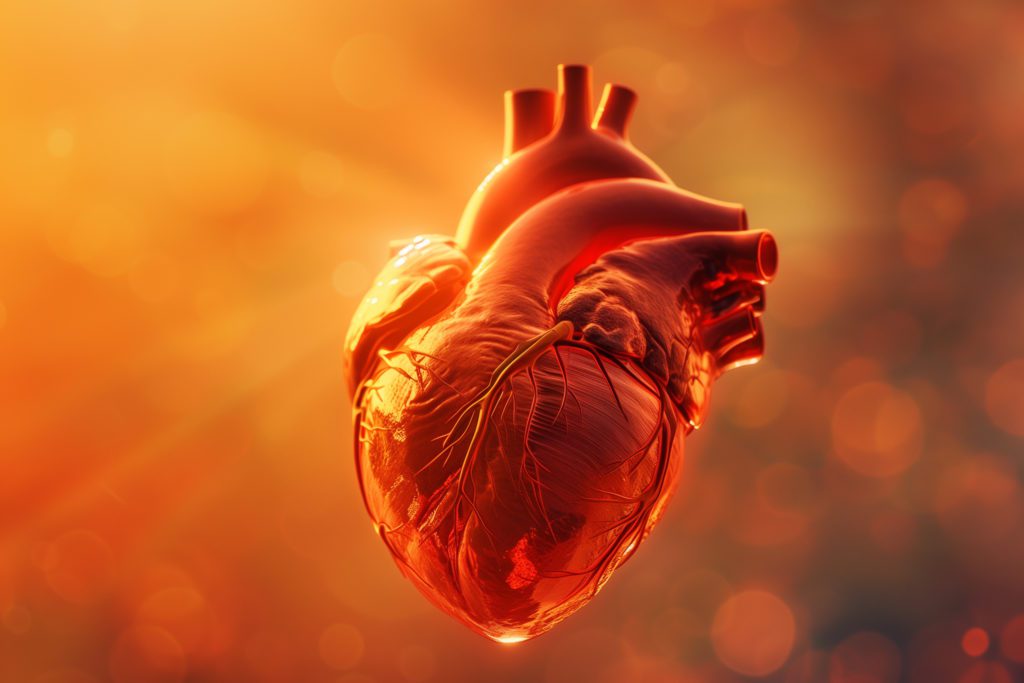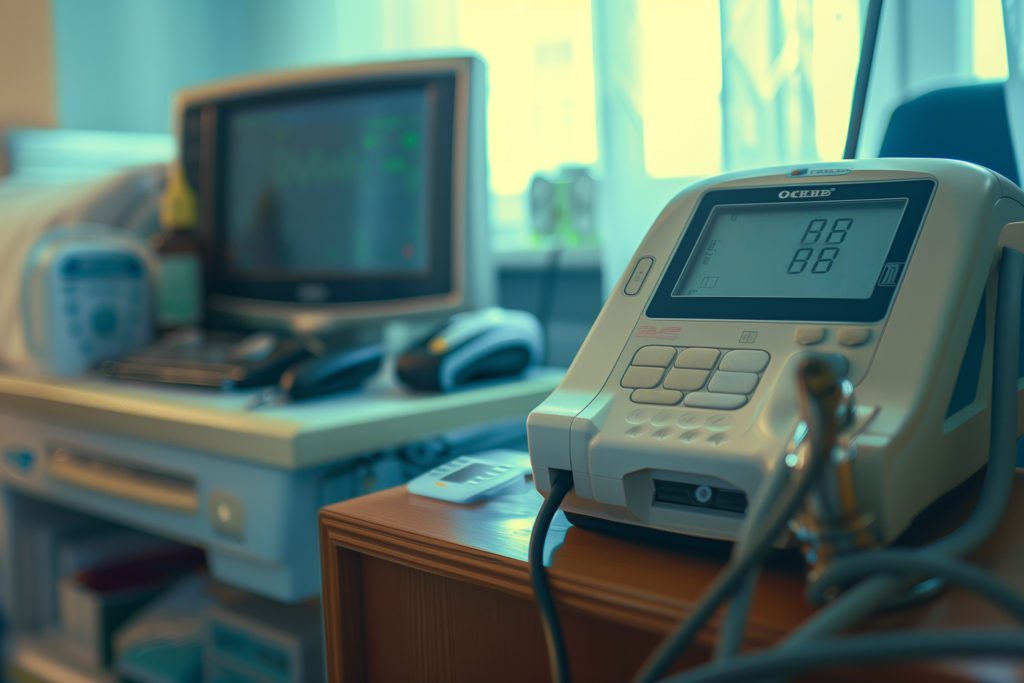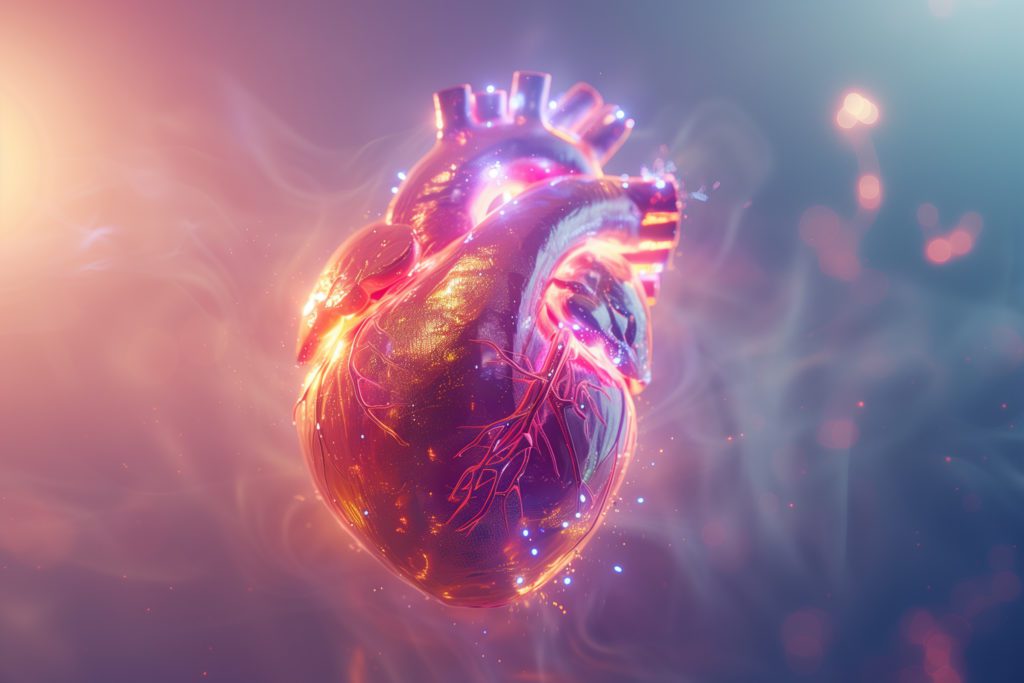
How Sleep Affects Cardiovascular Health
Diet and exercise play a big role in cardiovascular health, but getting enough quality sleep also contributes significantly.

This article will cover how getting good sleep protects your heart health, as well as the adverse effects of sleep deprivation and specific conditions that can be caused by not getting enough sleep.
Sleep Processes That Benefit Cardiovascular and Overall Health
Sleep allows the body to recuperate from the demands of the day, repair cells, and maintain healthy processes. Specifically, the respiration rate and the heart rate slow during sleep and blood pressure drops, which gives the cardiovascular system a well-deserved rest.
Beyond that, adequate sleep boosts the immune system, helps reduce stress, improves mental function, and improves mood. It also helps avoid the maladies that we’ll cover in the next section.
Not getting enough sleep can have far-reaching consequences on heart health.
It can lead to any of the following issues:
High Blood Pressure
Blood pressure typically drops by 10-20% during sleep in a process called nocturnal dipping which, again, allows the heart and vascular system to rest and recover. However, sleep deprivation can prevent this dip from happening. High nighttime blood pressure has been found to be even more indicative of future heart problems than high daytime blood pressure. Specifically, it has been shown to increase the risk for stroke, heart attack, reduced blood flow to the brain, and kidney problems.
Irregular Heartbeat
In addition to the blood pressure dropping during sleep, the heartbeat typically slows as well, especially during non-REM sleep phases. However, poor quality or interrupted sleep can prevent this slowdown from happening, resulting in extra stress on the heart. Irregular heartbeat issues such as palpitations can be associated with lack of sleep as well.
Type 2 Diabetes
Poor sleep or lack of sleep can lead to the development or worsening of type 2 diabetes, which is a chronic condition where the body cannot effectively process sugar, causing damage to blood vessels and the cardiovascular system. Unfortunately, those who have diabetes are two times more likely to die from stroke or heart disease than non-diabetics.
Sleep deprivation has a negative effect on glucose metabolism, and has been associated with the development of prediabetes, as well as poor blood sugar control and the acceleration of artery hardening in diagnosed type 2 diabetics.
Obesity
Studies have shown a correlation between lack of sleep and obesity, since adequate sleep works to regulate hunger controlling hormones. Sleep deprivation can also affect impulse control, which can lead to overeating and making poor diet choices.
In turn, obesity has a strong correlation with cardiovascular issues such as hypertension, high cholesterol, diabetes, heart disease, heart attack, and stroke.
Chest Pain
Chest pain is generally either classified as cardiac or non-cardiac, and both types of pain can be associated with lack of quality sleep. Cardiac chest pain (angina) is caused by poor blood flow through the vessels in the chest. This can happen when you are woken from sleep and your heart rate and blood pressure suddenly increase. If you wake several times throughout the night, this recurring chest pain can be uncomfortable and concerning.
Non-cardiac chest pain such as heartburn or acid reflux can actually cause poor sleep, since it can make it hard to fall asleep or can even wake you in the night.
It’s also possible to experience uncategorized chest pain, such as that which results from stress, anxiety, panic disorders, or high emotions. This type of chest pain can cause further distress (such as worry that one is having a heart attack), which makes it even harder to fall asleep.
Coronary Heart Disease
Heart disease is the number one cause of death in the United States, and research has shown that sleep deprivation can be to blame. Lack of sleep can cause atherosclerosis, which is the buildup of fats and cholesterol into plaques on the artery walls. These plaques cause narrowing of the artery which reduces blood flow, and they are also prone to bursting which can cause a blood clot. Additionally, sleep deprivation can cause chronic inflammation, which accelerates the hardening of arteries and the formation of plaques.
These problems are believed to be tied to the lack of a nocturnal dip in blood pressure during sleep, since the arteries never get to rest and can more easily become compromised, leading to the development of coronary heart disease.
Heart Attacks
Myocardial infarctions, commonly known as heart attacks, occur when there is a blockage that prevents blood from flowing to the heart. Heart attacks can be very serious and even fatal. Studies have shown that people who sleep fewer than 6 hours a night are 20% more likely to have a heart attack compared to those who sleep more than 6 hours per night.
Frequent sleep interruptions that cause spikes in heart rate and blood pressure can also contribute to heart attack risk since they cause stress on the heart and the whole cardiovascular system.
Heart Failure
Heart failure happens when the heart cannot pump enough oxygenated blood throughout the body. This can also be linked to inadequate sleep—a study showed a strong correlation between sleeping less than 7 hours per night and increased risk of heart failure. The study also indicated that the more signs of poor sleep a person had (such as insomnia symptoms, excessive daytime tiredness, snoring, etc.), the more likely they were to experience heart failure.
Stroke
In a stroke, the brain does not receive enough blood, which results in the death of brain cells due to oxygen deprivation. Strokes are generally caused by blot clots or plaques blocking arteries, either for a short period of time, until life-saving medical intervention can be delivered, or until brain death occurs.
High blood pressure is the top risk factor for strokes and, as we’ve covered, sleep deprivation can cause high blood pressure. Lack of sleep also makes it easier for arteries to become damaged and/or blocked.
FAQ
Are naps good or bad for cardiovascular health?
Short naps (10-20 minutes) can be beneficial for reducing fatigue and boosting heart health when nighttime sleep is inadequate. However, frequent or long naps may indicate underlying sleep issues and have been associated with cardiovascular risks if they disrupt nighttime sleep patterns.
Can poor sleep cause high blood pressure?
Yes, sleep deprivation or disrupted sleep can lead to higher blood pressure. During sleep, blood pressure naturally dips, giving the heart and blood vessels time to recover. Without sufficient rest, this recovery doesn’t occur, increasing the risk of hypertension.
Can poor sleep cause chest pain?
Yes, interrupted sleep can result in cardiac chest pain due to fluctuating heart rate and blood pressure, or non-cardiac pain from acid reflux or anxiety, all of which disturb rest further.
Does oversleeping negatively affect cardiovascular health?
Yes, excessive sleep (over 9 hours per night) has been linked to poor cardiovascular health, as it may indicate underlying conditions like sleep apnea, depression, or inflammation, which strain the heart.
How does sleep apnea influence heart health?
Sleep apnea disrupts oxygen levels and puts stress on the cardiovascular system. It is closely linked to high blood pressure, atrial fibrillation, heart attacks, and strokes.
Can my heart be affected by just one night of poor sleep?
Yes, even a single night of poor sleep can affect your heart. Research indicates that short-term sleep deprivation leads to increases in cardiac contractility, blood pressure, and heart rate, placing additional strain on the cardiovascular system. Elevated levels of stress hormones, such as cortisol, have also been observed.
References
- Michael A Grandner, Pamela Alfonso-Miller, Julio Fernandez-Mendoza, Safal Shetty, Sundeep Shenoy, Daniel Combs - Sleep: important considerations for the prevention of cardiovascular disease
https://pubmed.ncbi.nlm.nih.gov/27467177/ - How Does Sleep Affect Your Heart Health?
https://www.cdc.gov/heart-disease/about/sleep-and-heart-health.html?CDC_AAref_Val=https://www.cdc.gov/bloodpressure/sleep.htm - David A Calhoun , Susan M Harding - Sleep and hypertension
https://pubmed.ncbi.nlm.nih.gov/20682533/ - R Asplund, H Aberg - Sleep and cardiac symptoms amongst women aged 40-64 years
https://pubmed.ncbi.nlm.nih.gov/9627158/ - Diabetes, Heart Disease, & Stroke
https://www.niddk.nih.gov/health-information/diabetes/overview/preventing-problems/heart-disease-stroke - Yili Wu, Long Zhai, Dongfeng Zhang - Sleep duration and obesity among adults: a meta-analysis of prospective studies
https://pubmed.ncbi.nlm.nih.gov/25450058/

Written by
Cat Caroll
Articulate Writer and Analytical Editor
Download Pillow
Get help
Press & News
Legal
Connect
X (Twitter)
Company
Copyright © Neybox Digital Ltd.



